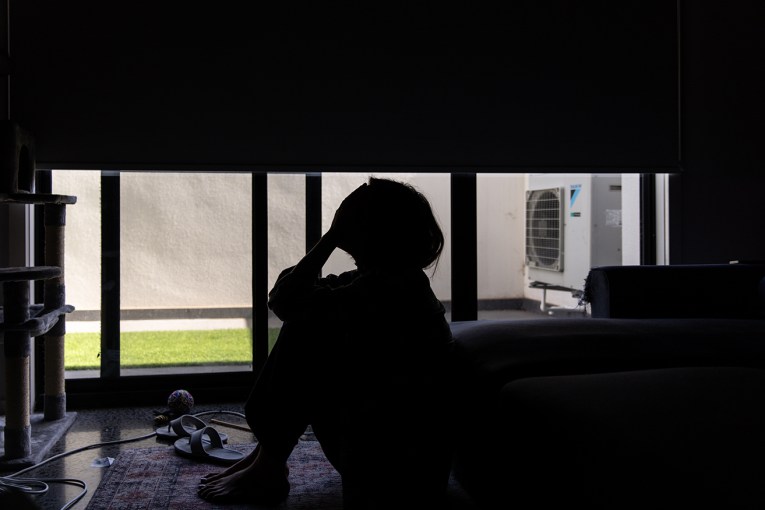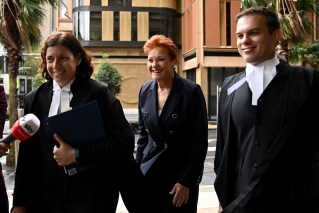Pressure on Labor over tax cuts, amid broad support for super hikes

Pressure is mounting on the federal government for a rethink on tax cuts, amid widespread support for its super changes and ahead of yet another likely rise in interest rates.
The latest Newspoll showed 64 per cent of people approved plans to double the concessional tax rate for super balances over $3 million.
The tax rate will rise from 15 per cent to 30 per cent from July 2025.
The findings were revealed on Monday – a day before the Reserve Bank’s March meeting is expected to bring yet another rise in official interest rates.
Independent senator David Pocock said the support for increasing super taxes to deal with government debt showed talks were also needed on repealing planned stage three income tax cuts.
“We’ve got to start talking about … putting in changes that ensure that the budget can worker harder for the people that need support, not people who’ve somehow managed to tuck away $3 million in super,” he told ABC Radio.
Repealing the tax cuts would put more than $240 billion back into the budget, which come into effect in July 2024.
They will abolish the 37 per cent marginal tax bracket and lowers the 32.5 per cent marginal tax rate to 30 per cent. The threshold for the 45 per cent marginal tax rate will also be raised, meaning everyone earning between $45,000 and $200,000 will pay the same 30 per cent tax rate.
Middle- and high-income earners will reap the largest rewards from the cuts.
Another independent senator, Jacqui Lambie,s aid the cuts could be tapered “so those people that are sitting on around that $120,000 mark can still actually get their tax cut”.
“It’s the ones that go up over that 150 or 160, I guess – do they actually need a tax cut?” she told Sky News Australia on Monday.
“That’s what we need to debate there, so some of that stage three tax cut is really important and still does hit those people that are just maybe just sailing along.”
Senator Lambie also warned about the effect of another rate rise on households already struggling with the cost of living crisis.
“I think that they are holding every penny they can. I have been brutally honest. I said, ‘Well, even if we don’t, at least be prepared’,” she told Nine.
“I’d rather give them the bad news and say that we are more than likely going into recession rather than sitting and waiting for that day to hit.”
The central bank has already lifted interest rates from historic lows of 0.1 per cent in April last year to 3.35 per cent in February, and is expected to hike rates again when the board meets on Tuesday.
Another 25 basis point increase, as widely anticipated, would take the cash rate to its highest level since May 2012.
A survey by comparison website Canstar found nearly 70 per cent of renters and mortgage holders were struggling financially due to cost of living pressures and higher interest rates, with 10 per cent of those 3100 surveyed already late on a payment.
The research also revealed fading confidence in the RBA’s ability to calm inflation by rising interest rates.
More than half said higher interest rates were not the solution to elevated inflation and believed people would continue to spend regardless.
Canstar finance expert Steve Mickenbecker said households paying off loans on their own homes or investment properties were at the pointy end of interest rate increases.
“They are rightly nervous about the Reserve Bank and government’s ability to ease inflation and cost of living pressures,” Mr Mickenbecker said.
For the average variable rate mortgage holder with a $500,000 loan and 30 years remaining, another cash rate hike will add $1051 to monthly repayments compared to April 2022.
If the cash rate peaks at 4.1 per cent, as some economists are predicting, monthly repayments will swell by $1217 compared to April last year.
Mr Mickenbecker urged households to refinance to get a better deal and consider fixed rates as the average fixed rate is now only 0.11 per cent more than the average variable rate.
“Fixed rates may also be back on the agenda for borrowers who can afford repayments today but fear future increases.”
While another lift to the cash rate rise is broadly expected when the board meets on Tuesday, economists are still largely undecided about how much further the RBA has to hike.
Westpac economists anticipate the cash rate peaking at 4.1 per cent in May before an easing cycle kicks off in early 2024.
Westpac chief economist Bill Evans said the bank had kept its forecasts stable despite national accounts data revealing “extraordinary pressures” on household budgets.
Mr Evans said domestic demand was flat in the quarter despite the significant fall in the household savings rate, which should have freed up spending capacity.
While the bank’s economists were surprised to see the sharp contraction in real incomes in the December quarter, Mr Evans said the national accounts result was broadly consistent with the bank’s expectations for weakening spending in 2023 and 2024.
“We expect three more rate hikes from the RBA through 2023 while rates are forecast to fall by 100 basis points in 2024.”
-with AAP








